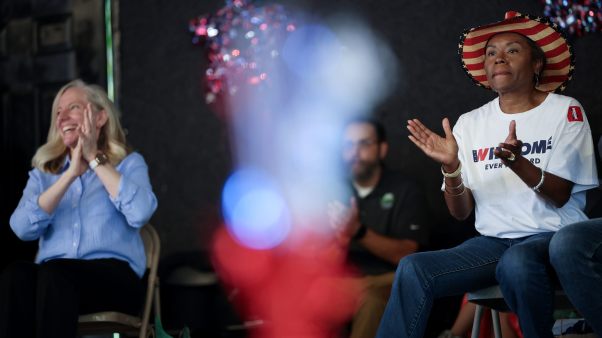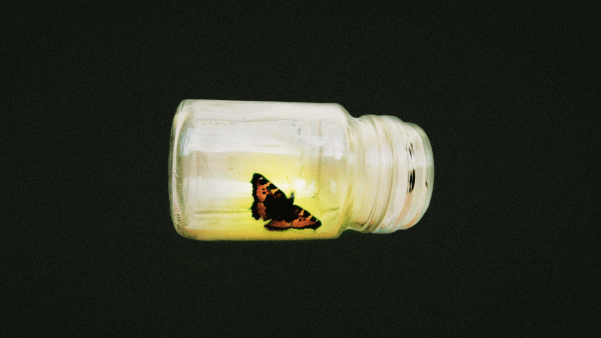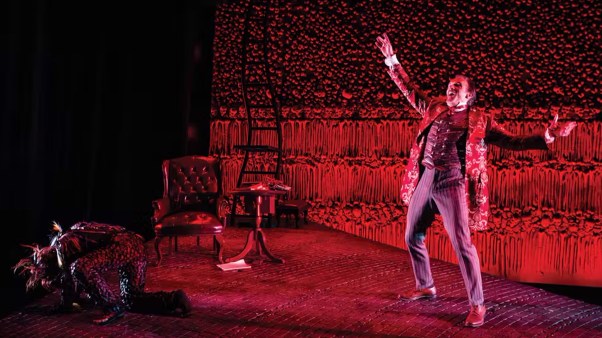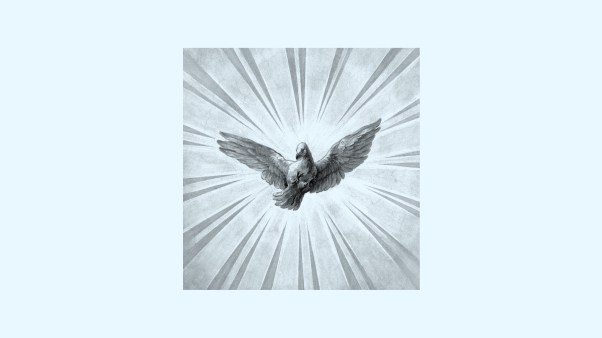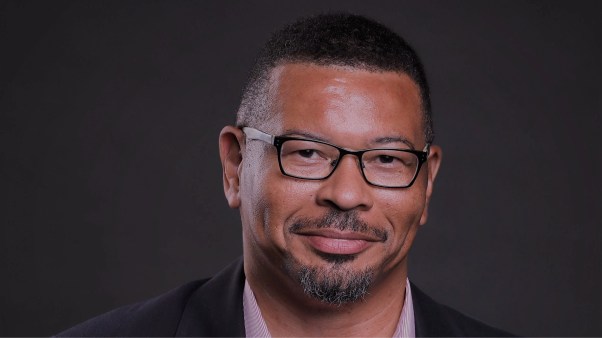Jason Gray is trying to move past his identity as The Stuttering Artist, but he’s not completely letting go of that label either.
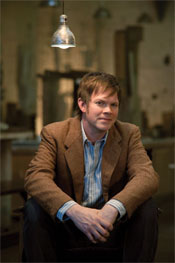
A decade ago, Gray, whose new album A Way to See in the Dark (Centricity), releases today, was often introduced as a thoughtful singer/songwriter who also happens to have a speech impediment. When he signed with Centricity Records in 2006, Gray and the label had a frank discussion about it.
“I’d always had this opportunity to talk about the virtues of weakness and brokenness and how God meets us there,” says Gray. “It’s a great doorway to begin a conversation about weakness. But when I signed with the label, they said, ‘Let’s be careful to not let this become a gimmick. You don’t want to be known as The Stuttering Artist for your whole career.’ I thought that was wise. So we try to make use of it but not allow it to define all of my work.”
Gray might just as well be known as The Thoughtful Artist, because, well, he likes to think deeply about things. We talked to him about that, about his new album, about his struggles with depression, and about his thoughts on what causes us to sin.
You’ve been described as “a deep thinker.” Is that true?
Yeah, I’m pretty deep in my head most of the time. I’m reading a book about the how different personalities learn. I’m this weird combination of an emotional person who feels things, and a logical person who wants every statement justified.
On my last album, the song “More Like Falling in Love” was like a corrective for myself in that I realized that I’m more comfortable at times with intellectualizing my faith. I wondered if I was doing that just to keep it up in my head as a way of protecting my heart from the gospel—holding my heart back a little. I think others would say I’m thoughtful, and that can be as much a handicap as it is an asset. So I’m trying to walk that balance of keeping my head and my heart connected.
What kind of things do you find yourself thinking about?
I’m thinking a lot about identity and where I find it and why it matters. My last album closes with a song called “I Am New,” which is about understanding who I am in Christ. I wrote that three years ago and discovered that I really didn’t know what I was talking about until maybe about six months ago. It’s like I knew it as a concept but I didn’t know it in my DNA, in the wholeness of who I am.
I thought this new album would be all about identity—but I don’t think it turned out that way. It opens with a song called “Remind Me Who I Am.” It began with me wondering, What is the motivation for why we sin? When I was growing up I absorbed the idea that we sin because of our willful disobedience and because we are rebellious to our core. But the more I thought about it, the more I realized that I really don’t want to sin, and so it seems like something I actually do against my will. Like Paul says, “Why do I do what I don’t want to do, and what I do want to do that’s what I don’t do?”
The whole Romans 7 thing.
Yeah. So sin began to look more like an addiction to me. A guy recently asked me, “Is sin a crime to be punished or a disease to be cured?” I’ve been wondering about that. And I began to wonder if we sin because we forget who we are. I’ve been spending a lot of time thinking about the curse; in Genesis 3, we’re told that the first consequence of sin entering the world is that the ground would be cursed, and we would toil and there would be weeds and … It’s this idea of futility, that our efforts don’t produce what they ought to, and no matter what we do it feels like it’s never enough. I feel like, especially for men, no matter what we do, not matter how hard we try, we feel like we’re never enough. I think that that’s the curse. We carry around this deep sense of unworthiness.
And things go from bad to worse with the ways we try to manage the curse in our lives—with things like materialism or having affairs. I think that’s what pornography is all about, too. I think that the real allure is this fantasy world that you can enter into where you can imagine being loved and desired with no risk of rejection. It’s responding to the curse. Same with workaholism: If I can just work hard enough, long enough, I can prove to myself and everyone around me that I’m worth something.
So, I’m curious about temptation, and how it relates to this longing to feel worthy and loved. We run to all the wrong things. In my life, I’m trying to learn how to run to Christ and ask him to remind me who I am. He calls us his bride. He calls us the child that he chooses to adopt in his family. He calls us his treasure.
Jesus talks about the kingdom of God being like a man who discovers a treasure in a field, and he goes and he sells everything so he can buy the field and recover the treasure. When I was growing up, I was always told that we are the man in the story who must be willing to give up everything to gain the kingdom of God. That’s true, I think, but a friend recently pointed out that in all the other parables surrounding that one, the man is always God. He’s the farmer who sows the seed, etcetera. And that changes everything. Then we have a God who gave everything he had in Jesus Christ to buy us back, to recover us, and that makes us his treasure. The more I run to that truth, the more these other things just begin incrementally to lose their hold on me.
Since I’ve been pursuing that kind of understanding, this really curious thing happens. I find that I’m not as tempted to sin anymore. It doesn’t have as much of a hold on me. But when I do give in to temptation, at one point in my life I would have felt guilt and shame, which would have made things worse, because shame gets a greater hold on me. But now when I sin, I realize, I’m doing this because I forgot that I’m beloved. And it drives me to Jesus.
That just feels like the kingdom of God to me—that sin drives us to Christ and the cross and to the heart of God rather than further into our own darkness. And realizing that shame and fear are hell’s greatest weapons against us. I’m going after fear and shame on this record.
Are you winning?
Ah, day to day. I think I’m making headway.
The new album’s lyrics are quite transparent.
When I write, one of the first things I usually ask is, “What are you most afraid of right now? Let’s write a song about that.” I’ve risked real transparency on this album, but I want to write songs in service to my audience. I try to be mindful to make the songs accessible and not too self-indulgent—a mix of pop music and confessional singer/songwriter fare. I’m always that way, but I feel like it’s more of both on this new record—more accessible and more transparent.
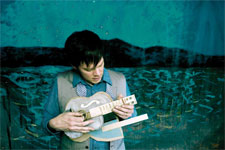
What’s the most honest song on the album?
“Without Running Away.” It was born out of a time when I was tempted to take my life. The first verse begins, “I’ve spent some days looking for a length of rope / And a place to hang it from the end of my hope.” But instead of acting upon that, I wrote a song about it.
When was this?
I don’t know if I’m comfortable with disclosing that.
Really? Your call, but people will read those lines and think, Oh, that must be metaphorical. But you really did look for a length of rope …
Yeah.
Just share whatever you feel comfortable sharing about that.
Ok. There are days where it feels hard to bear up underneath the onslaught of all that is challenging and discouraging. I have struggled with depression at times, and I always wanted to do a song about it in hopes that it could encourage other people who are dealing with that. I wrote this song in about a half an hour, which is a big deal, because I usually work on a song for like a year. That song was just kind of an overflow of where I was at in that moment. I never thought I’d record it, but as we were compiling songs for this record, the A&R team at my label thought I should include it. They believed that it was a brave song.
You don’t want to burden your audience or bleed on them, which is why I’m hesitant to talk about it. I don’t want it to become about my episode where I was kind of down. I want it to be a help, speaking a heart language to a person who’s going through difficulty.
My testimony is kind of crazy. My stepdad was abusive and involved in the occult and organized crime and all that kind of stuff. I hardly ever talk about it anymore because I’ve discovered that for the audience, the focus becomes all the dark details of how crazy he was as opposed to the grace that brought me through it. So I’d rather have a person hear the song and be moved by it, as opposed to be like, “Oh man, he was messed up that day. Man, he almost hung himself.” You know what I mean?
What sparked the song “I Will Find a Way”?
I think it’s the best song I’ve ever been a part of. I had worked on it for years and kind of stalled out on until I brought it to my friend Andy Gullahorn. It’s based on Walt Wangerin’s “An Advent Monologue.” I love the beauty of Wangerin’s source material. It was hard to find the right way to turn it into a song, but I feel a sense of accomplishment for how it turned out. The story is a beautiful and mysterious telling of the incarnation. I cry nearly every time I hear the song, which is a rare experience to have with one of your own songs. I’ve maybe built it up too much, but I hope you like it.
Most of these songs are co-writes, with the likes of Brandon Heath, Jason Ingram, Joel Hanson, and others …
I used to never co-write at all. I kind of hated it. But it’s kind of the opposite now; I don’t like doing songs by myself anymore. I read an interview with Bono and how he needs The Edge in the room with him when he writes. He’ll work on a lyric and he’ll be like, “Man, I think this is great, but I don’t know for sure.” He needs a person in the room to tell him if it’s great or if it’s indulgent or awful. With co-writing, I feel like I can take more risks because I’ve got another person who’s watching my back. I feel that way, too, because I have found the kinds of guys that I trust, and we’re after a similar kind of thing. So, I love co-writing now. In fact, when I’m by myself, I sit in front of a blank screen, and I don’t know what to do and I doubt everything I write. It helps to have a person in the room who says, “Dude, that’s awesome,” or “Dude, throw that away. That’s awful.”
Gray will join Centricity label mates Aaron Shust and downhere for the Call to Love tour this fall.
Copyright © 2011 Christianity Today. Click for reprint information.




